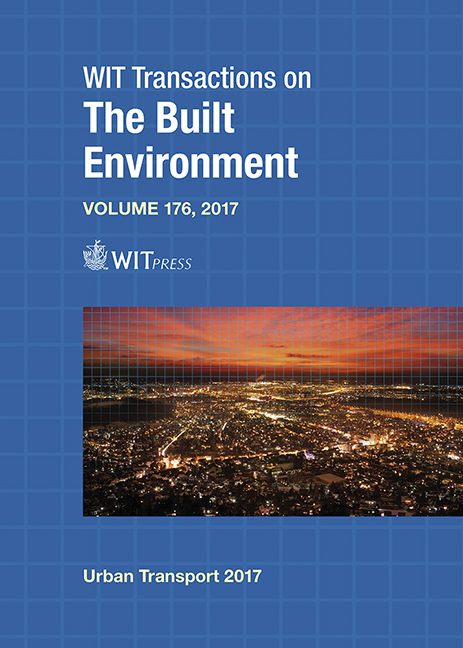WHAT REGULATIONS FOR ICT-BASED MOBILITY SERVICES IN URBAN TRANSPORTATION SYSTEMS? THE CASES OF RIDE-BOOKING REGULATION IN SAO-PAULO AND RIO DE JANEIRO
Price
Free (open access)
Transaction
Volume
176
Pages
12
Page Range
95 - 106
Published
2017
Size
513 kb
Paper DOI
10.2495/UT170091
Copyright
WIT Press
Author(s)
MAXIME AUDOUIN, CATARINA NEVES
Abstract
Urban transportation is currently experiencing major changes, namely because of disruptive innovations driven by the information and communication technologies (ICTs). During the past few years, ride-booking has emerged in many cities around the world as one of the most prominent new disruptive mobility services, impacting urban transportation systems and creating unprecedented regulatory challenges for local authorities. This paper will compare the development and implementation of different regulatory approaches used in two South American cities. We first review the existing literature to assess the research gap in the regulation of ICT-based innovative mobility services. Then, through two exploratory case studies, mainly based on archival data such as newspaper articles and government publications, we present the regulations developed during the last 2 years in Rio de Janeiro and São Paulo in Brazil concerning the globally known ride-booking service UBER. These two cities, while geographically and demographically similar, have taken opposite stances on ride-booking regulation, with São Paulo pushing for integration and Rio de Janeiro pushing for banishment. By comparing these two cases, and looking at how foreign cities deal with the issue of ride-booking regulations, this paper proposes three different regulatory approaches, and ultimately contributes to the growing literature focusing on ICT-facilitated disruptive services regulations. We conclude the paper by highlighting future research needs in the area of digital urban transportation.
Keywords
TNCs, regulation, UBER, disruption, ICTs, ride-booking





